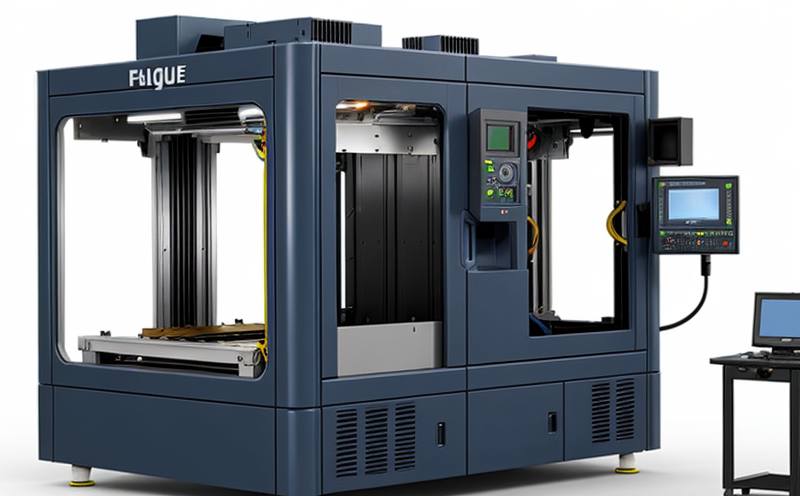ASTM D7774 Flexural Fatigue Testing of Plastics Validation Method Development Test
The ASTM D7774 flexural fatigue test method is a critical procedure for validating the durability and life expectancy of 3D-printed parts made from thermoplastic materials. This service ensures that additive manufacturing (AM) processes produce components with reliable performance under repetitive loading conditions, which are common in many industrial applications such as aerospace, automotive, and medical devices.
ASTM D7774 is specifically designed to assess the fatigue behavior of printed plastics by subjecting specimens to cyclic flexural strain. This method helps manufacturers identify potential weaknesses in their AM processes that could lead to premature failure under operational conditions. By validating test methods through ASTM D7774, companies can ensure they are meeting industry standards and regulatory requirements.
The testing process involves creating multiple specimens using the intended production parameters for the additive manufacturing process. The specimens are then subjected to a series of flexural fatigue cycles until they fail, typically at or near their maximum expected life span in real-world applications. This allows engineers to gather data on the cyclic behavior and durability of the material being used.
Our service includes:
- Development and optimization of test methods
- Creation of standard operating procedures (SOPs) for ASTM D7774 testing
- Conducting tests according to ASTM D7774 specifications
- Data analysis and reporting on fatigue performance
The results from this validation ensure that the additive manufacturing process is consistent, reliable, and capable of producing parts with predictable fatigue properties. This is crucial for industries where safety and longevity are paramount, such as aircraft manufacturers who rely on 3D-printed components to withstand thousands of flight cycles.
| Applied Standards | Description |
|---|---|
| ASTM D7774-18a | Flexural fatigue testing method for thermoplastic materials using 3D printing technology. |
| American Society for Testing and Materials (ASTM) | The authority on standards that ensure quality, safety, and consistency in materials, products, systems, and services. |
By adhering to these stringent standards, we provide our clients with accurate and reliable data that can be used for process optimization, material selection, and product certification. Our team of experts ensures that every test is conducted under controlled conditions, following the latest industry guidelines.
Why It Matters
The durability and reliability of 3D-printed components are essential for ensuring safety and performance in various industries. Flexural fatigue testing according to ASTM D7774 provides insights into how these parts will behave under cyclic loading, which is a common scenario in real-world applications.
For instance, aerospace manufacturers often use 3D-printed parts that must withstand the stress of repeated takeoffs and landings. Automotive companies may rely on printed components for engine mounts or suspension systems exposed to dynamic loads during vehicle operation. In each case, understanding the fatigue life of these parts is crucial.
ASTM D7774 helps bridge the gap between theoretical design parameters and practical performance by providing empirical data that can inform process improvements. By validating test methods through this standard, manufacturers can ensure they are producing parts that meet or exceed industry expectations for longevity and reliability.
Applied Standards
| Standard | Description |
|---|---|
| ASTM D7774-18a | This standard specifies procedures for flexural fatigue testing of thermoplastic materials produced using 3D printing technology. |
| American Society for Testing and Materials (ASTM) | Establishes a framework for developing, promulgating, and coordinating standards that cover a wide range of technical issues in materials science. |
These standards are vital in ensuring that tests conducted by our laboratory meet the highest scientific and engineering criteria. By adhering to ASTM D7774-18a, we can provide clients with confidence that their testing is not only accurate but also compliant with recognized industry practices.
Customer Impact and Satisfaction
- Enhanced product reliability and safety
- Reduced risk of component failure in critical applications
- Improved process consistency across multiple production runs
- Increased customer trust through compliance with industry standards
Our clients benefit from our expertise in ASTM D7774 testing by gaining valuable insights into the fatigue behavior of their 3D-printed components. This knowledge allows them to make informed decisions about process improvements, material choices, and product design. The data we provide can also support regulatory compliance and certification efforts.





